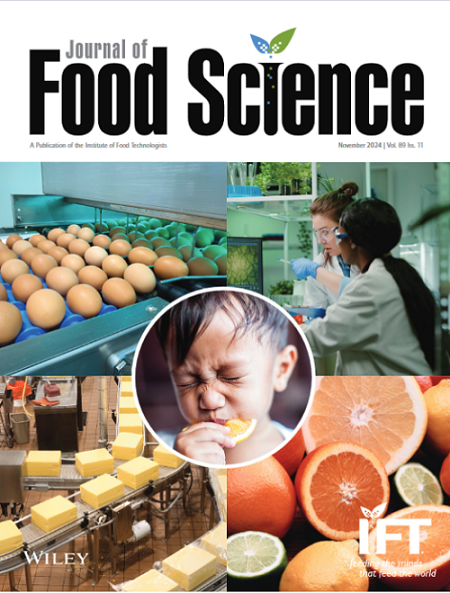Effect of marination with bioprotective culture-containing marinade on Salmonella spp. and Listeria monocytogenes in chicken breast meat
Abstract
This study investigated the survival of Pseudomonas spp., Salmonella spp., and Listeria monocytogenes in chicken breast meat marinated with a marinade containing bioprotective lactic acid bacteria (Latilactobacillus curvatus, Latilactobacillus sakei, and Lactiplantibacillus plantarum) during storage at 4°C and 8°C. In the first phase, a natural, chemical-free marinade (pH 3.6) was evaluated over 7 days. In this marinade, Pseudomonas spp. did not survive, Salmonella spp. were inactivated within 7 days, L. monocytogenes counts showed negligible reduction, and bioprotective cultures remained stable. In the second phase, chicken breast meat contaminated with Salmonella spp. and L. monocytogenes was divided into control (non-marinated), marinated control (M-C), and marinated with a marinade containing mixture of bioprotective cultures (M-PC). Initial pH values were 5.99 (control), 5.24 (M-C), and 5.32 (M-PC). At 4°C, L. monocytogenes counts in the M-PC group were 4.4 log10 cfu/g lower than the control and 1.4 log10 cfu/g lower than the M-C group on Day 14 (p < 0.05). By Day 14, Pseudomonas spp. counts were 9.4, 7.3, and 5.7 log10 cfu/g in the control, M-C, and M - PC groups, respectively (p < 0.05). At 8°C, Salmonella spp. in the M-PC group fell below 1.0 log10 cfu/g by Day 12, and L. monocytogenes counts were significantly lower than in the M-C group (p < 0.05). Marinating with bioprotective cultures enhanced microbial safety and extended shelf life compared to marinating without them. This approach could offer significant potential for improving the preservation and safety of poultry products.
Practical Application
Marinated poultry meat, whether prepared domestically by consumers or commercially produced by the poultry meat industry, is widely enjoyed for its flavor and convenience. In this study, bioprotective cultures were incorporated into the marinade as an alternative to chemical preservatives. The findings demonstrate that marinating chicken breast meat with a marinade composed entirely of natural ingredients and enriched with bioprotective cultures not only extends the product's shelf life but also significantly limits the survival of Pseudomonas spp., Salmonella spp. and Listeria monocytogenes. These results suggest that meat products marinated with bioprotective cultures, or ready-to-use marinades containing such cultures, can be effectively developed and marketed by the meat industry to meet consumer demand for safer, long-lasting, and naturally preserved food products.


 求助内容:
求助内容: 应助结果提醒方式:
应助结果提醒方式:


